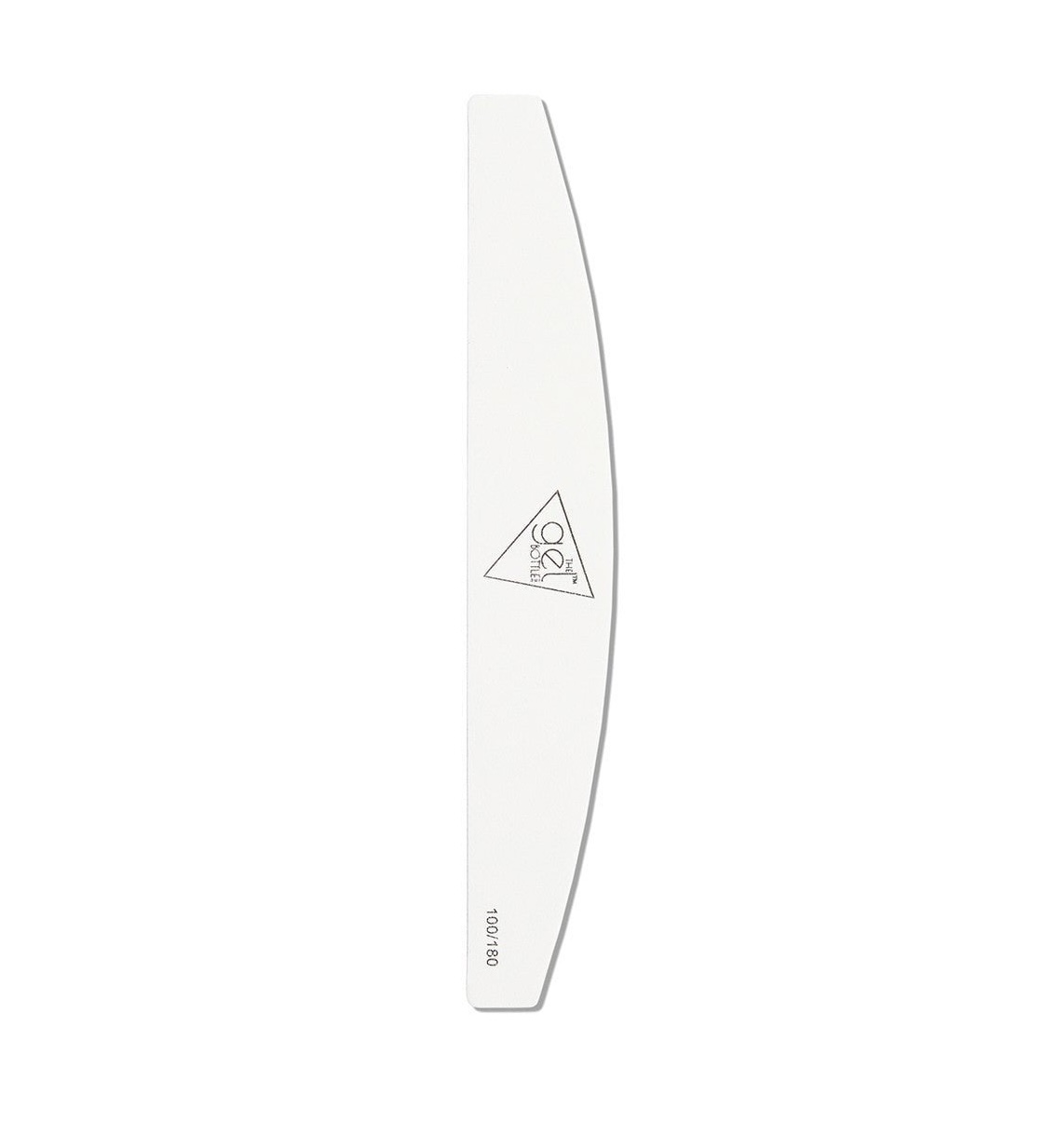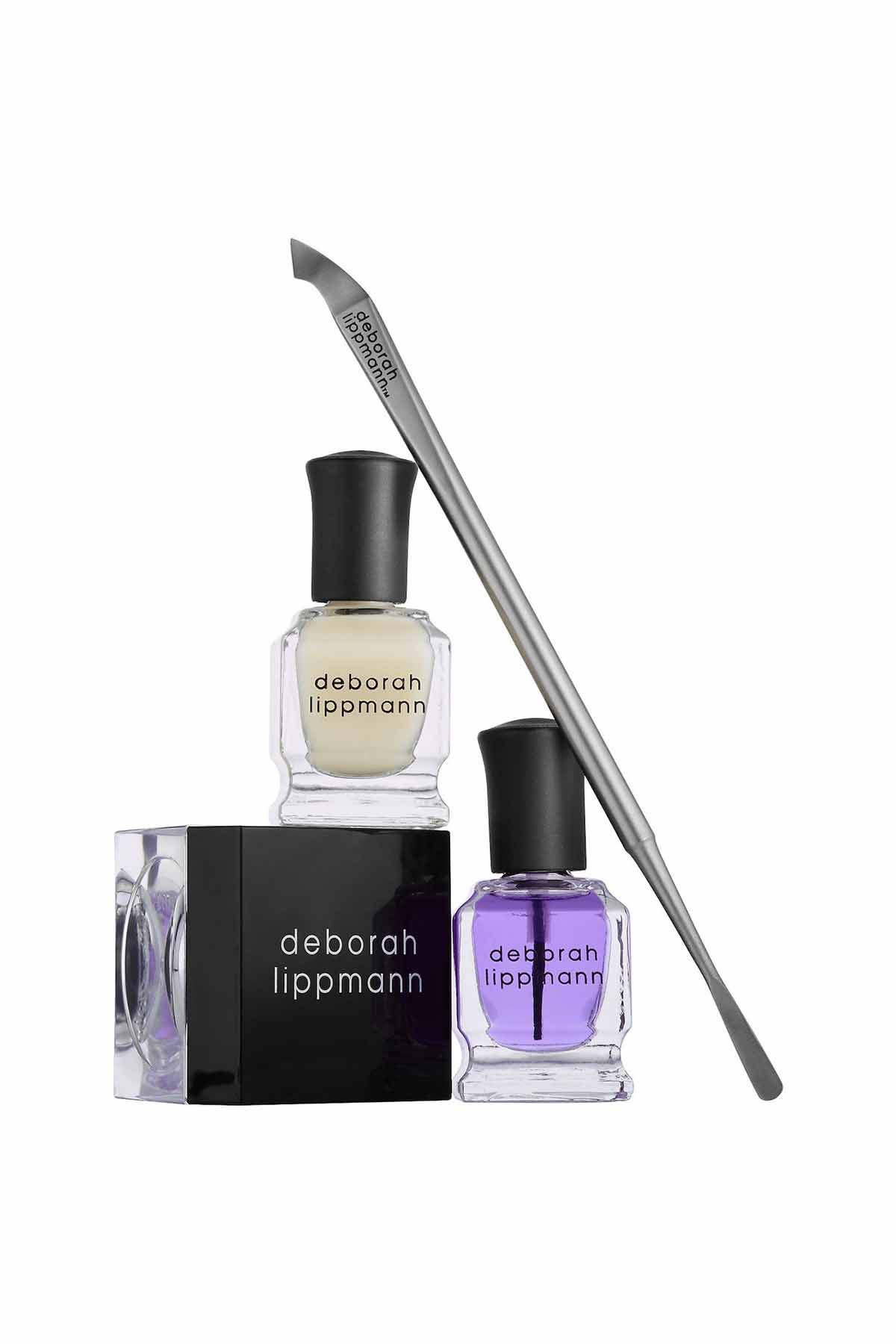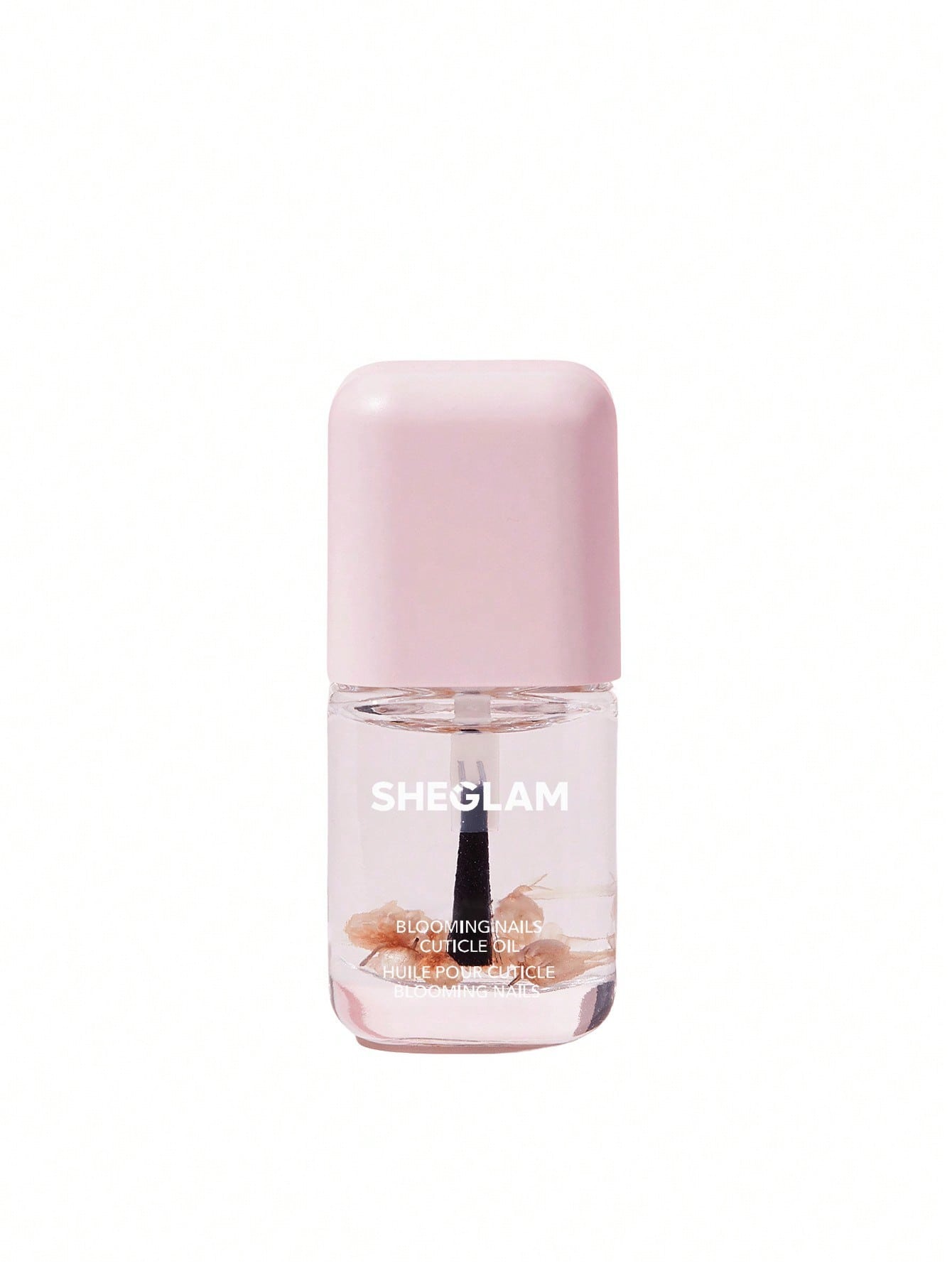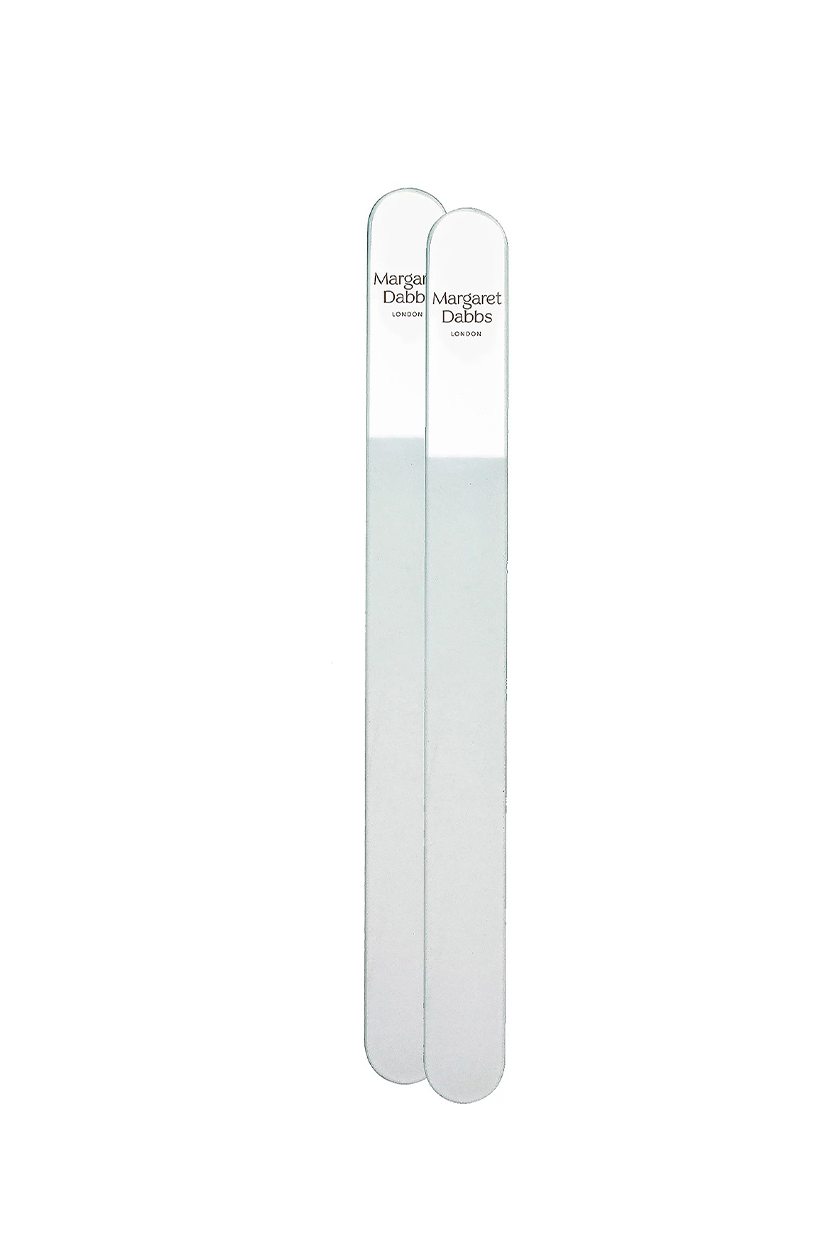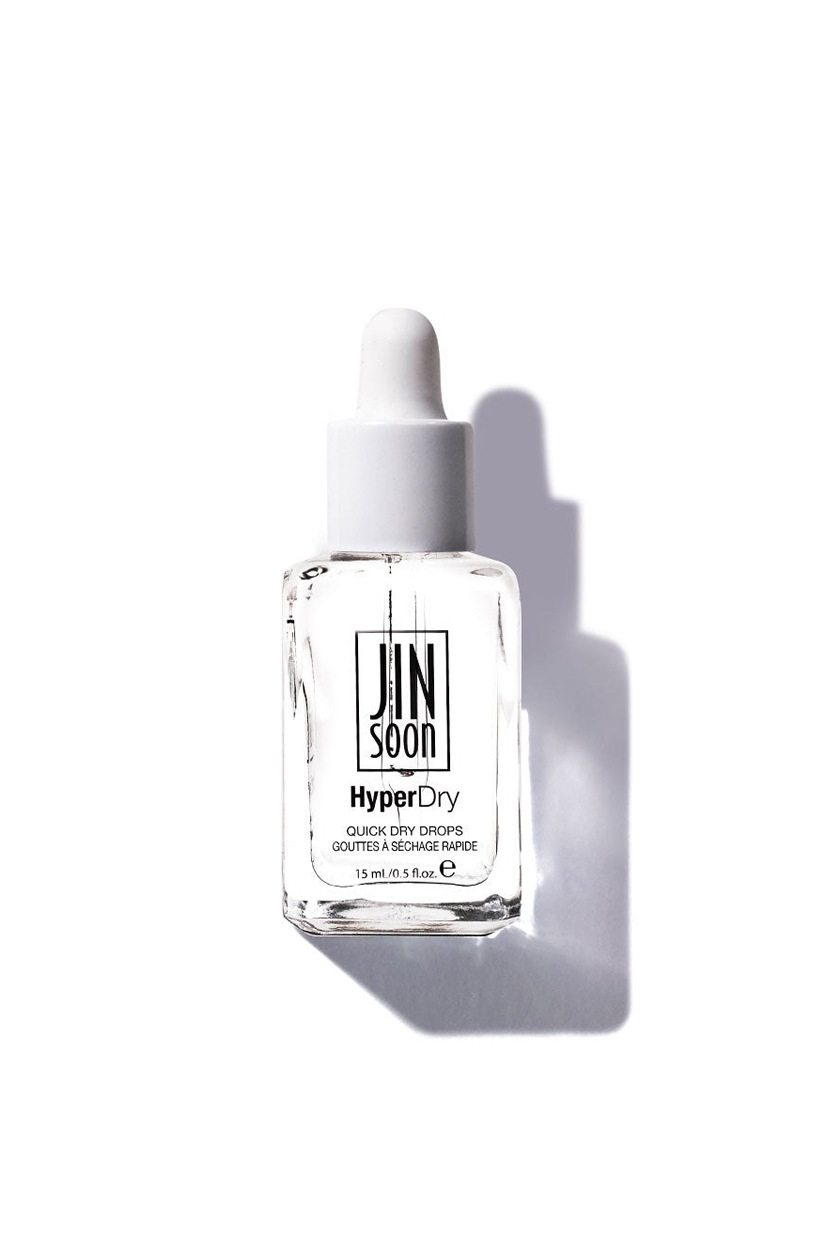Rough, Cracked Nails? You're Probably Ignoring This Key Step in Your Routine

I've always preferred to keep my self-care routines short and to the point, which sometimes means sacrificing particular steps in the interest of time. When it comes to my weekly at-home manicures and bi-monthly salon visits, however, I never settle for less than perfection. I want to finish a manicure, admire my perfect nails, and wonder what shape and polish I'd like to try next. Over time, I've learned that it's the pre-polish preparation that determines what my nail experience will be, and it begins with a good nail buffing.
Buffing your nails is one of the best ways to set yourself up for flawless nail polish application and healthy-looking nails, but taking the time to complete the nailcare step tends to get lost in the manicure mayhem. Below, we're taking a closer look at the must-have tool with the help of two beauty experts who know their way around a nail buffer.
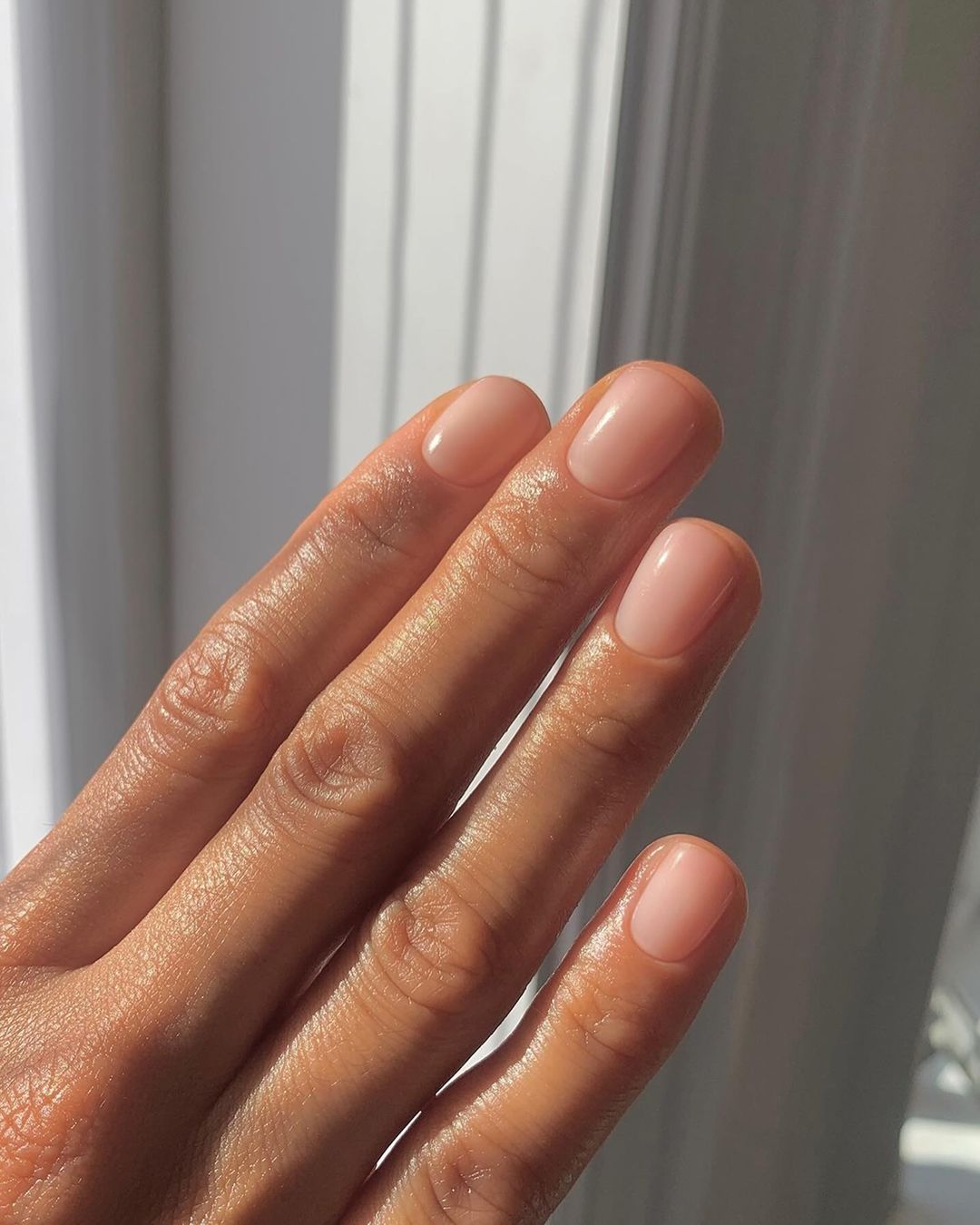
What Are Nail Buffers?
Multiple nail buffers are sitting right in front of you at the salon and in the hands of your trusted nail artist, but you're still skipping over them during your at-home manicures. Both celebrity manicurist and brand founder Deborah Lippmann and Ogle School veteran cosmetologist and beauty educator Lindsay Worthen tell us buffing your nails happens to be the one step that should never be overlooked, as it smooths away your natural nail's ridges and imperfections and raises natural oils for a smooth, shiny, and healthy finish.
Additionally, selecting the right nail buffer for your manicure goals—especially when it comes to understanding what the role of certain buffer designs. "It is worth noting that buffers come in various 'grit' levels, which allows you to choose the one that would be best for you based on the coarseness of your nails," she begins. "Some buffers have an additional fabric that can make nails über-shiny to give the illusion of clear polish." If, after using a nail buffer, you're planning to apply polish, she warns against picking a buffer that features the fabric used to shine the nail since polish won't adhere as well due to the high gloss.
What Is the Correct Way to Buff Nails?
According to guidance from both Worthen and Lippmann, the best way to buff your nails is as follows:
- Before beginning to buff your nails, ensure that they are completely dry and clean of polish.
- Flat nail buffers should be held parallel to your nail and make strokes in an X shape to smooth out the surface without causing damage.
- If using a four-sided nail buffer, start with the roughest side and buff the nail back and fourth before repeating the same action for each side. (The lower the grit on a buffer, the more abrasive it is on the nails.)
- Stop buffing when your nails look smooth, as over-buffing can leave them thin, frail, and damaged.
- Finish by leaving your natural nail as is or coating them with your polish of choice.
How Often Should Nails Be Buffed?
One of the biggest mistakes you can make when buffing your nail is to over-buff. "How frequently you should buff your nails is based on lifestyle. You do not want to buff too often, as it is removing a small layer of your natural nail plate," says Worthen. She suggests buffing your nails only as often as you would get a manicure.
Lippmann agrees that minimal buffing is the way to go, encouraging reserving buffing nails for when extra TLC is needed or give your manicure an extra boost. To not weaken your nails and keep them looking their healthiest, she recommends sticking with buffing your nails about once a week, or each time you refresh your manicure, if doing minimal buffing. So the next time you're in need of a spa night and ready to upgrade your at-home manicure, a nail buffer may be the way to go.
Keep scrolling to see which nail buffers experts and beauty editors trust to deliver a flawless-looking manicure without breaking the bank.
The Best Nail Buffers
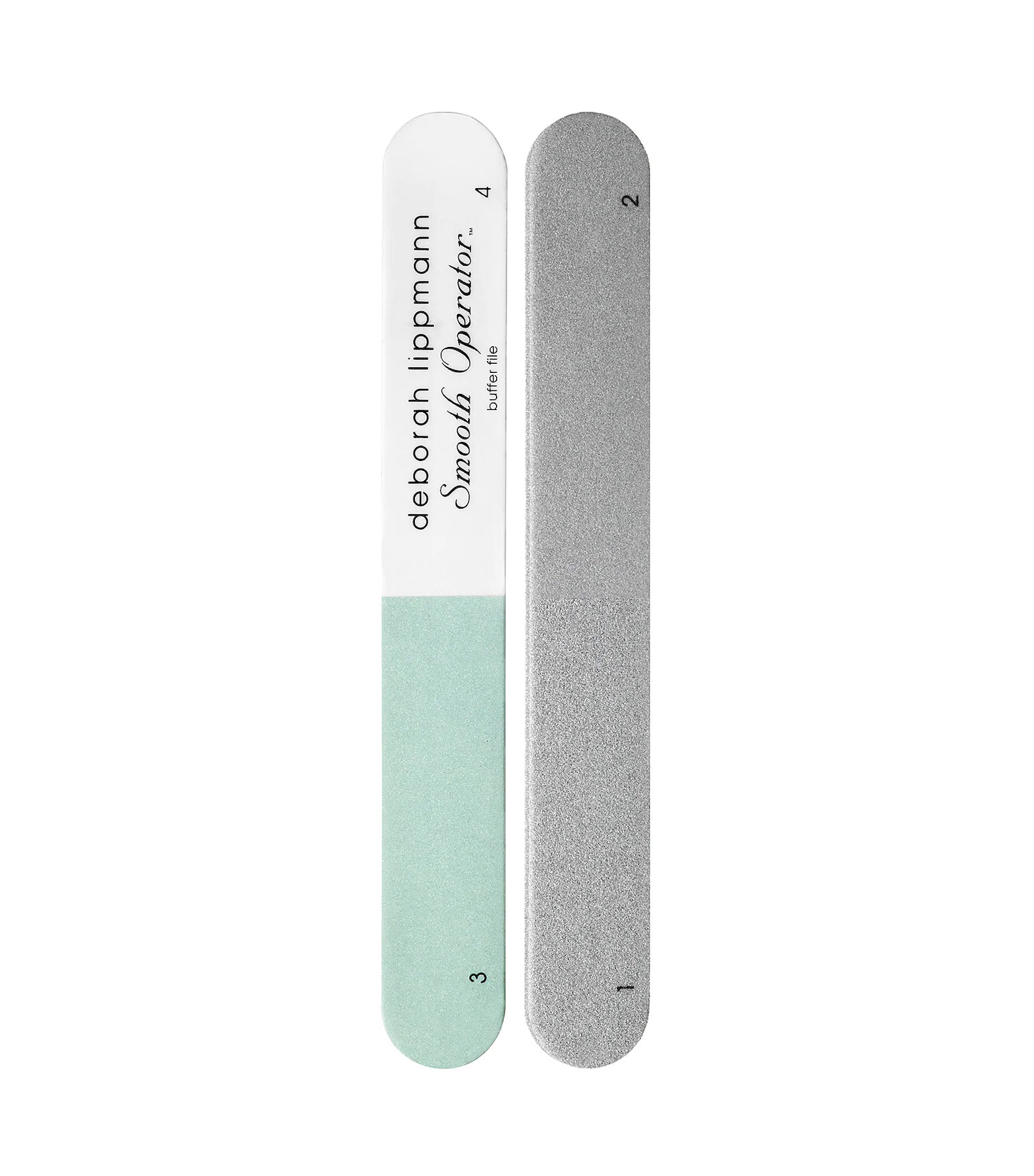
Lippmann is such a firm believer in using a nail buffer to keep nails healthy that she created her own nail buffer. It offers four ways to buff based on the user's desired coarseness to achieve high gloss and is easy to use for all skill levels.
Customer Review: "Love this buffer. I have moderately ridged nails. This buffer makes them look great without polish and also makes the polish go on more smoothly when I do choose to wear it. I use this as a companion to the cuticle care kit from Lippmann, which is also great."
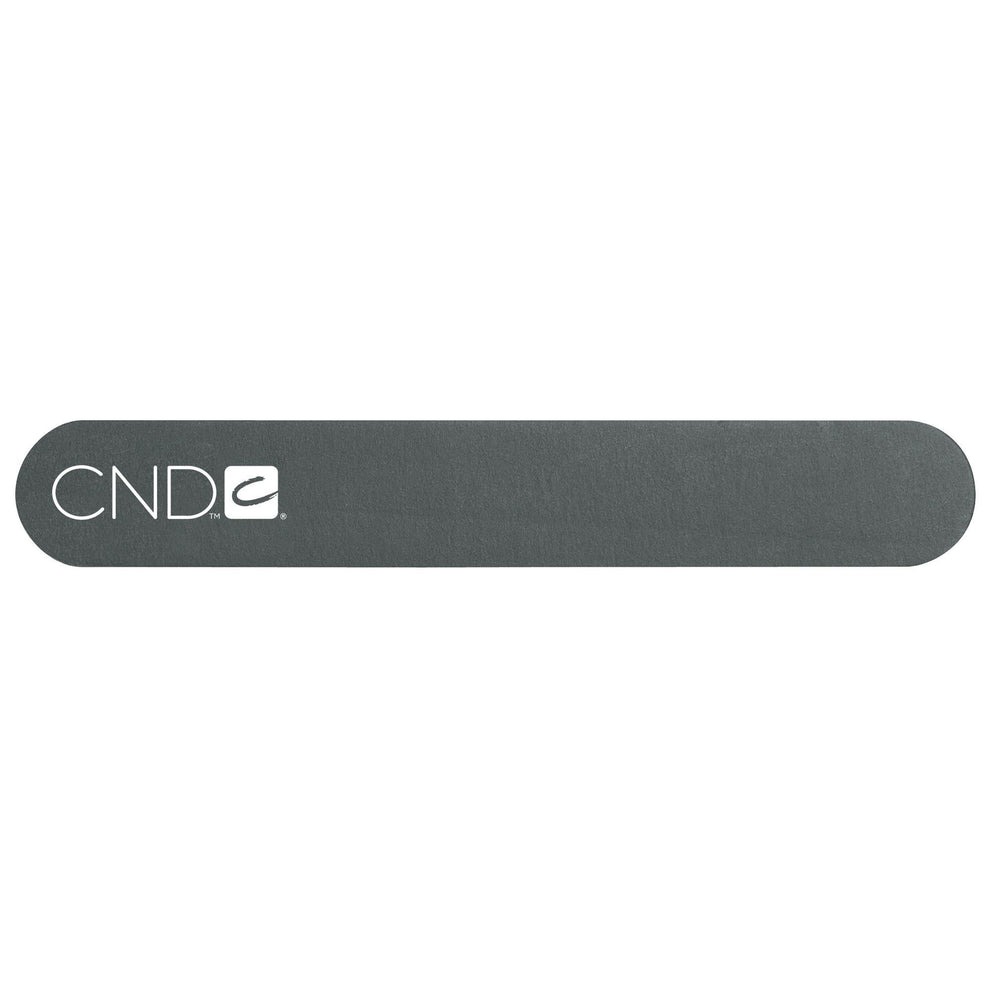
Beloved by manicurists everywhere, this helpful nail buffer by CND features extra-soft padding to reduce strain on the nails and create flatness. Its 240/1200 grit sides create shiny, sleek nails every time.
Customer Review: "I have been using the Koala Buffers since CND introduced them as one of their products. They are the perfect file when providing manicures and pedicures services."
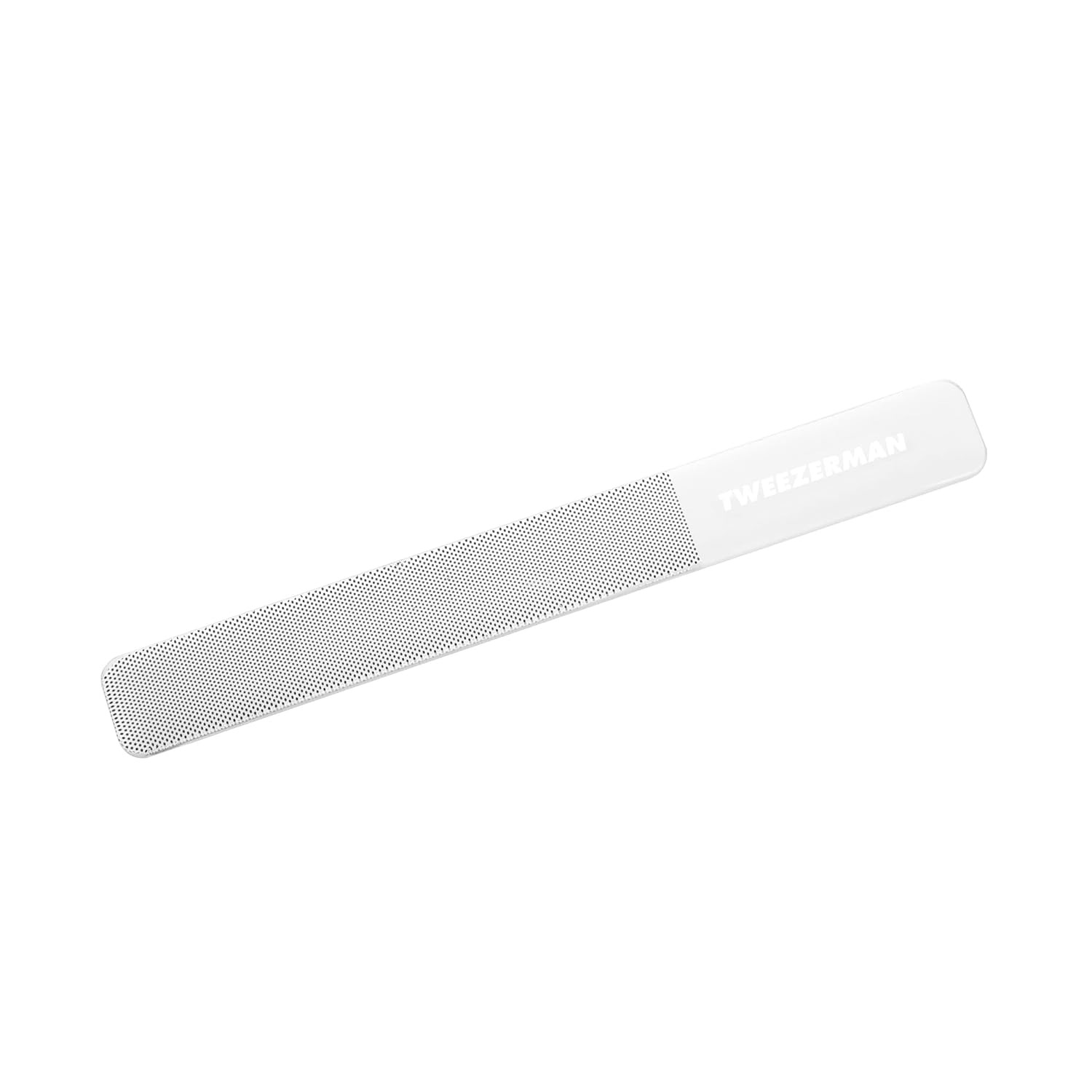
What's more effortlessly elegant than using a glass nail buffer for manicures? This sustainable alternative for disposable nail buffers gently buffs and shines in one step while also being durable, gentle, and easy to clean.
Customer Review: "The glass buffer is excellent. Removes ridges and leaves a nice natural shine. So much better than the useless buffers I’ve wasted money on at the drug store over the years. Just buy it, you won’t be disappointed."
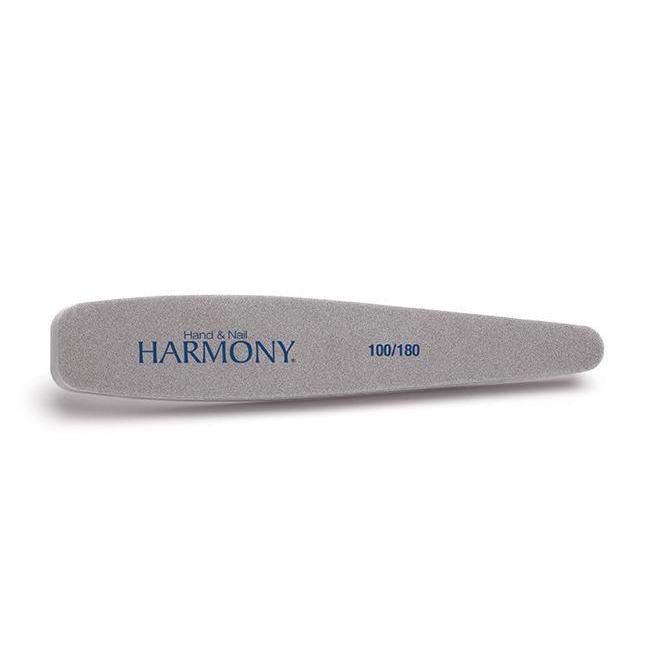
Harmony's Gelish Buffer is designed to be used on gel nails to help level the surface of the artificial nail and prepare it for the application of high shine and gel polish with a 100/180 grit surface.
Customer Review: "This nail file is very good for filing my nails when I use an acrylic dip system. Great for smooth nails without damaged nails."
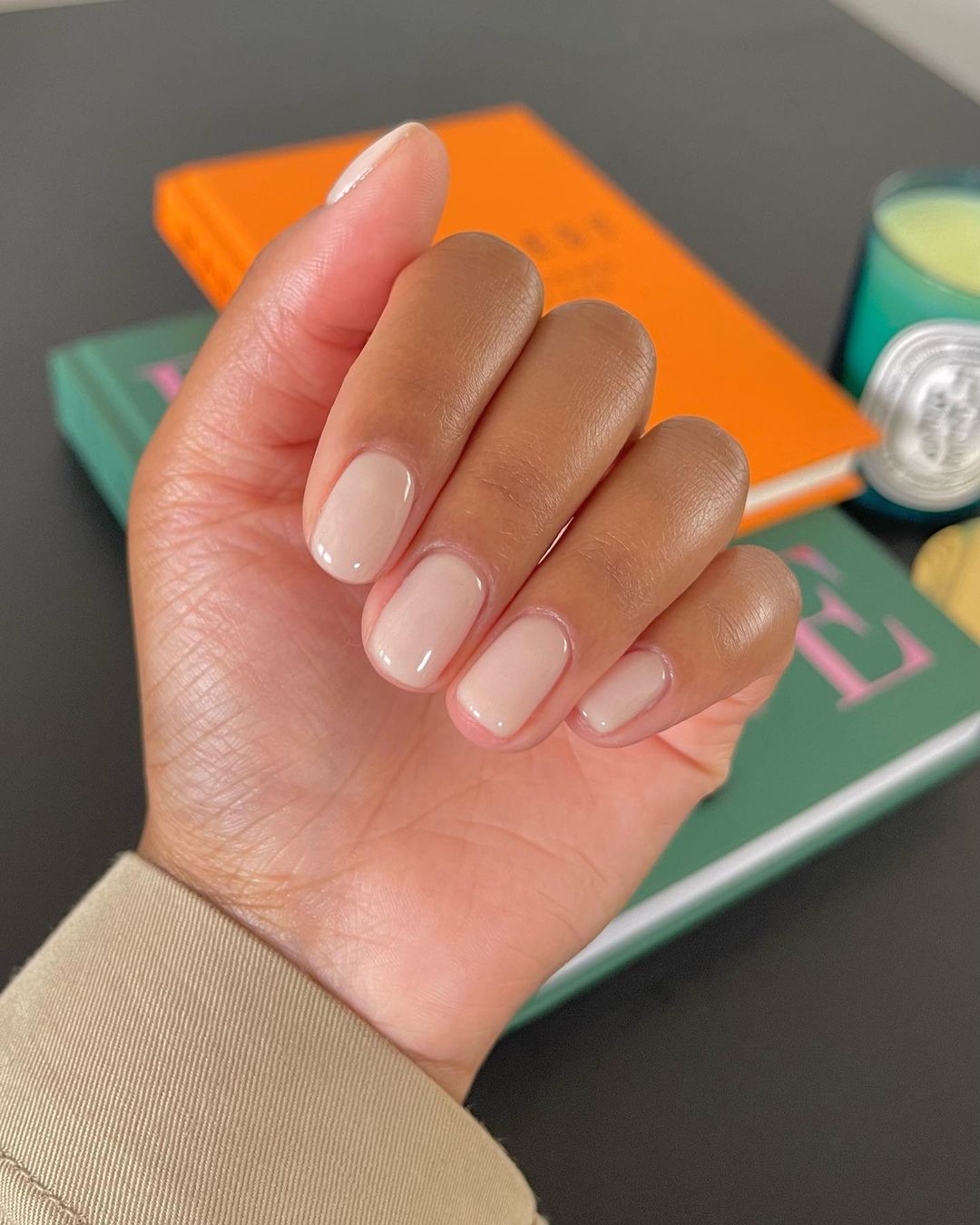
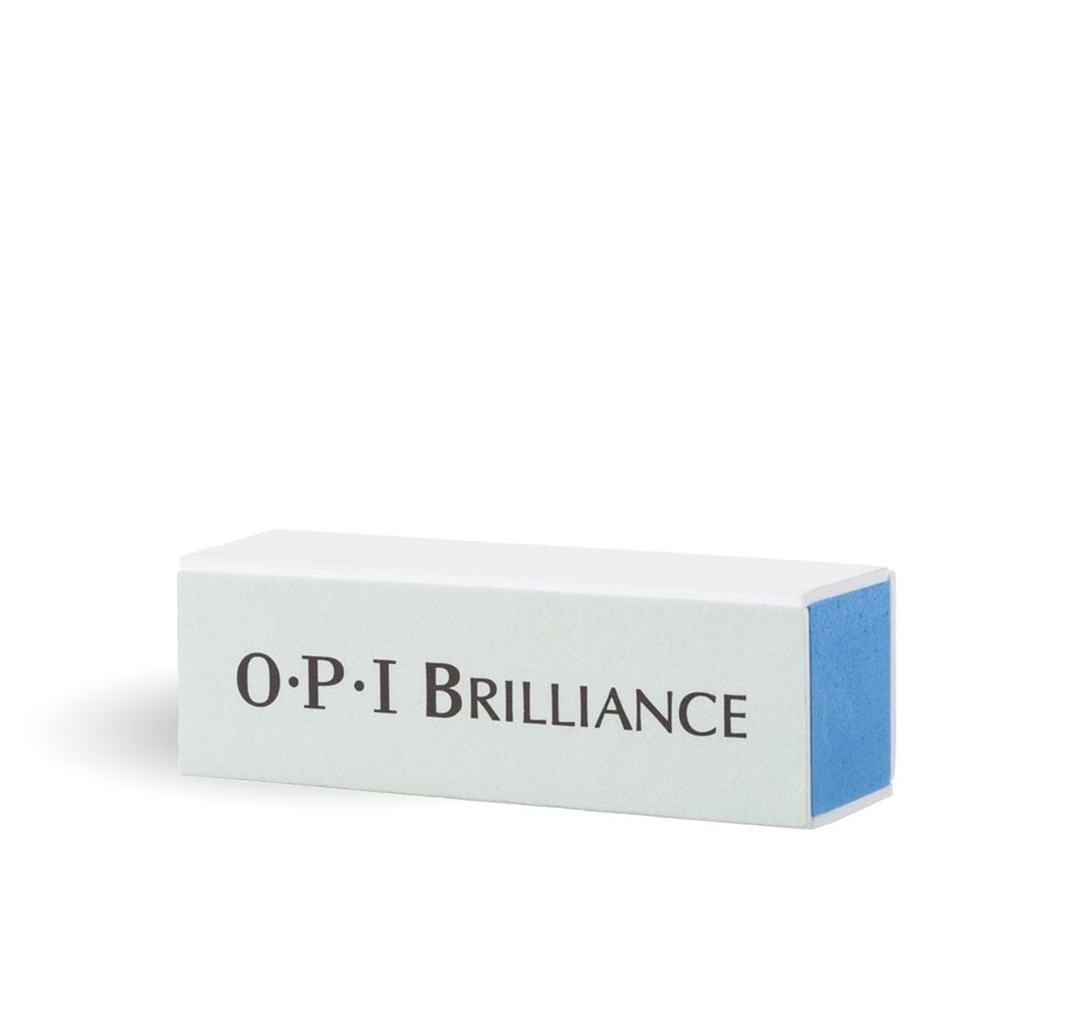
Worthen's favorite nail buffers to use are four-sided, which gives users the ability to progressively work from a lower grit to a higher grit for a smooth and shiny finish. OPI's Brilliance Block is her top pick.
Customer Review: "Precisely and gently shapes nail edges and smooths nail surfaces both natural and artificial. Preps nails for easy application of nail polish. Adaptable 4-sided surface design tailors to both manicures and pedicures. Features long-lasting construction. Comes with a convenient carrying case."
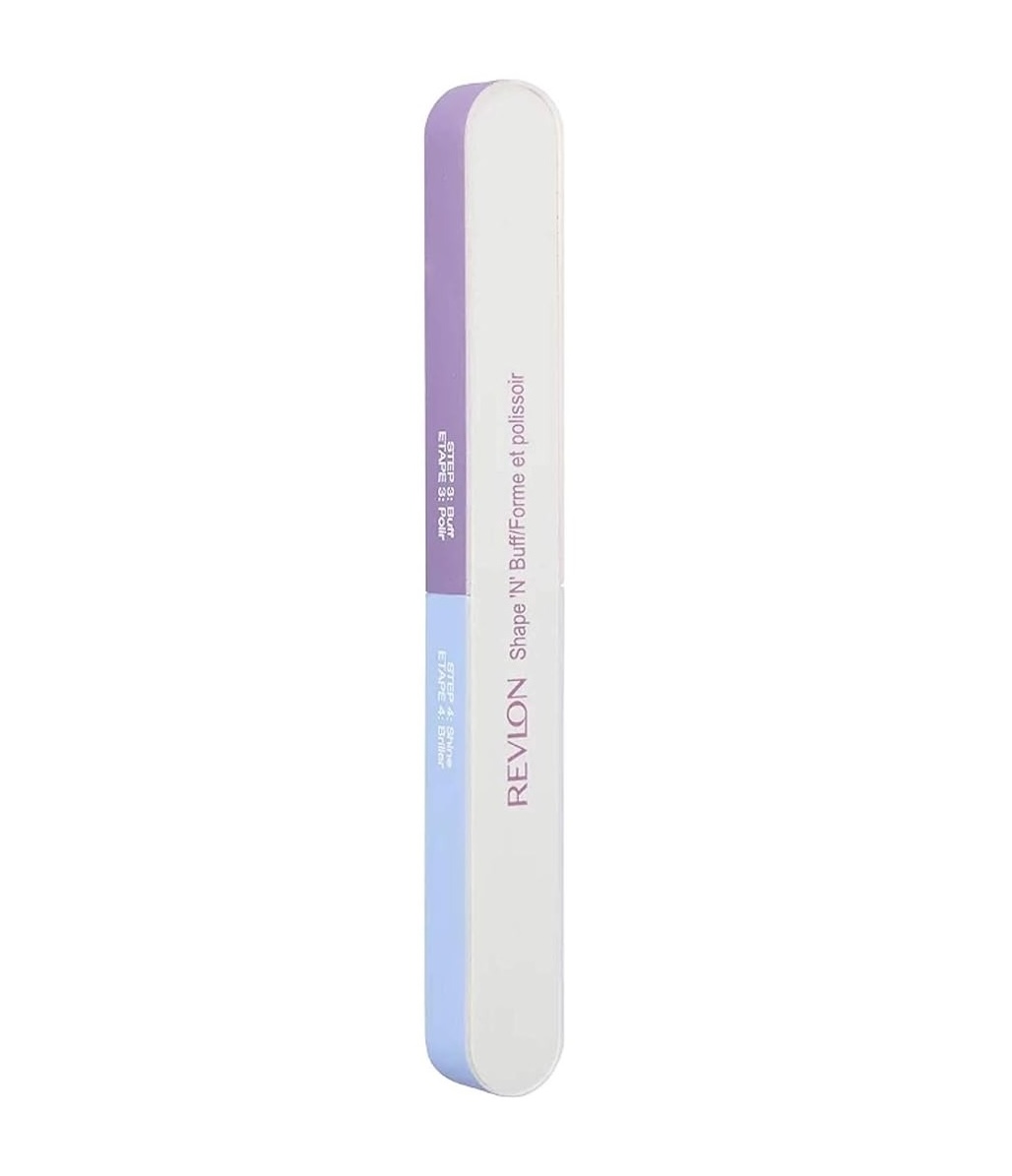
Why do you need a separate buffer and nail file when you can get the effects of both in one handy tool? Revlon's Nail Buffer lets users shine and refine the shape of their nails with four high-quality buffing surfaces.
Customer Review: "This is the perfect nail file/buffer for everything it’s got course medium shine, and buff areas. It’s a matter fact I’m using The coarse side right now to break my gel polish so I can remove it. This is the second one I have purchased, and I will definitely continue to buy them."
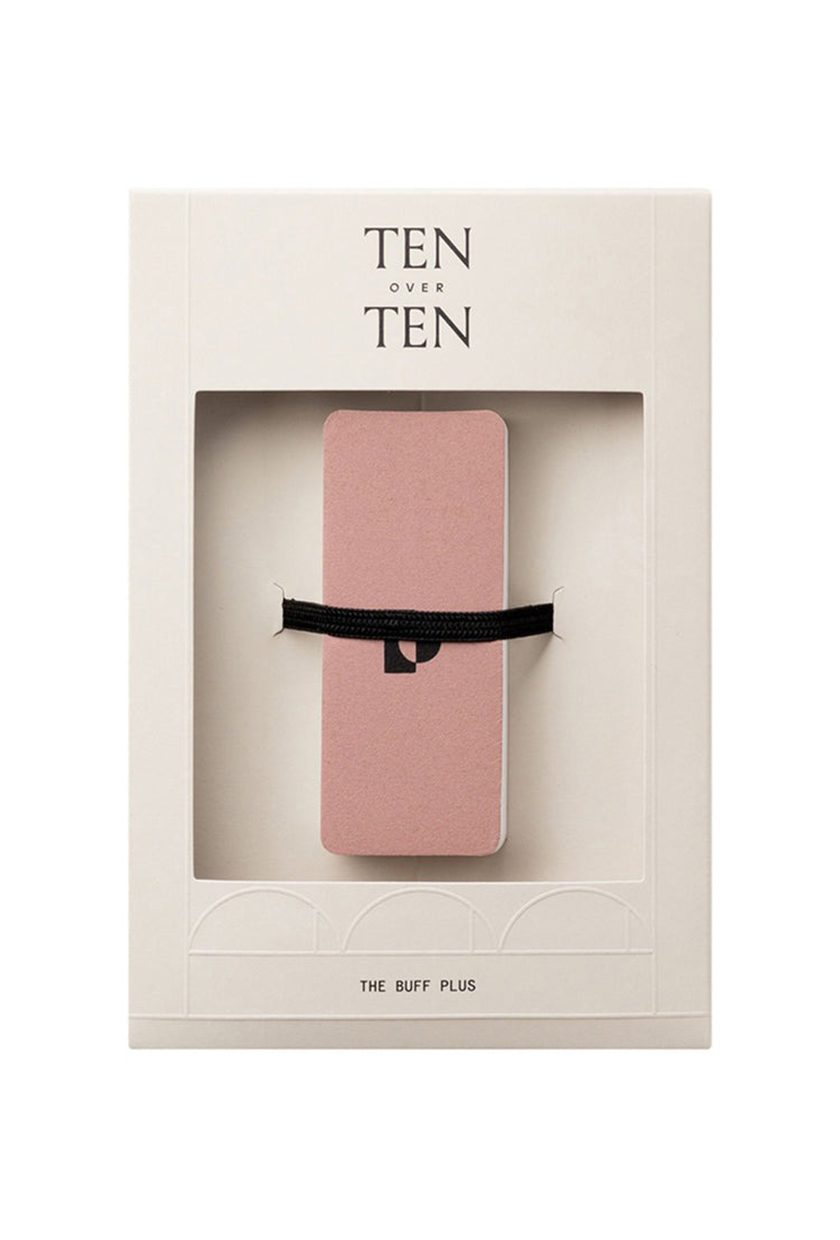
Tenoverten's The Buff Plus is a must-have for anyone looking for a nail buffer that's the perfect size for on-the-go nail fixes. While one side works by buffing the nail to create the perfect surface for polish, the other brings out the glow.
Customer Review: "I love how shiny my nails look after using this. Even after I apply nail polish and remove it they keep a little bit of that luster which has NEVER happened with other buffers like this. After using press on nails religiously my nails needed a little TLC and this product has been a godsend! I cannot recommend it enough."
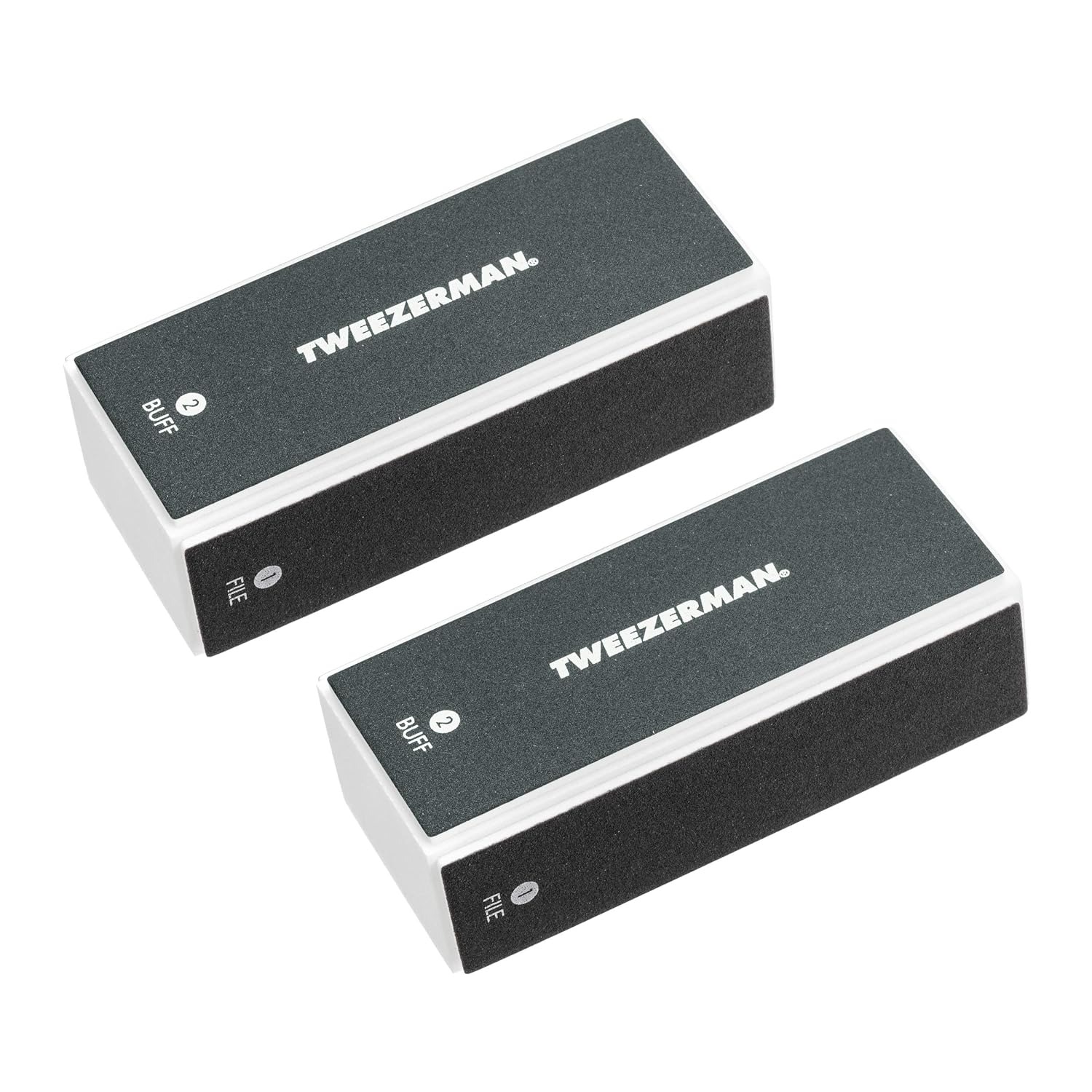
Another Tweezerman find, this four-sided nail buffer features pads that file, buff, smooth, and shine nails. Each buffer pad is numbered for easy use and can be replaced when they've been worn out.
Customer Review: "This nail buffer offers a variety of nail care options including file, buff, smooth and shine all in one product. I am in the process of restoring the health of my natural nails after years wearing acrylics. This buffer is an integral part of that care."
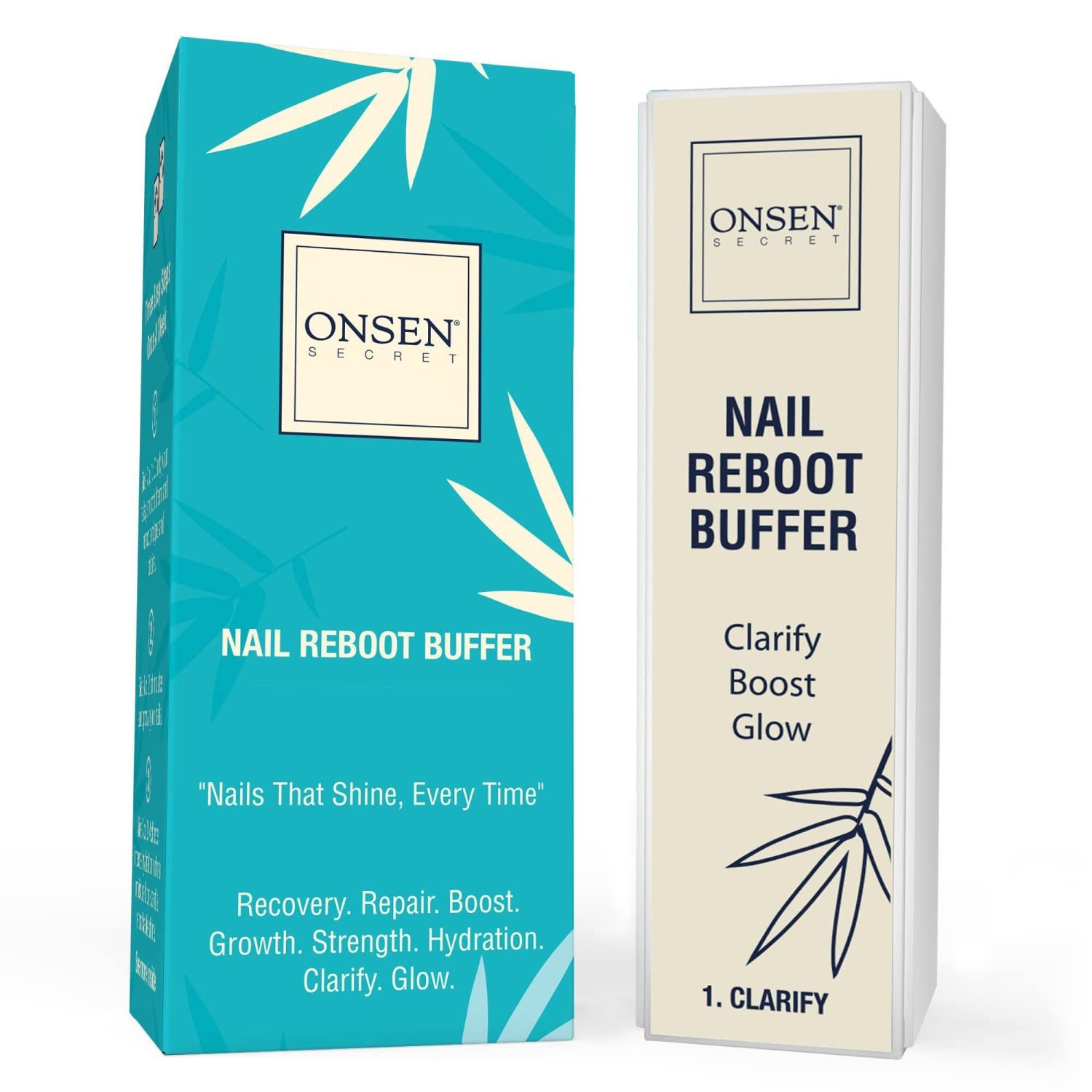
This triple-sided nail buffer creates a smooth and flawless surface to help restore your natural nails to their healthiest state and extend the chip-free wear time of your polish.
Customer Review: "I love this product. It's quick, easy to use and leaves a nice shine on the nails for up to 10 days for me. I wash my hands often and wear gloves throughout work days. It's a nice option to have when you haven't had a mani in a long time."
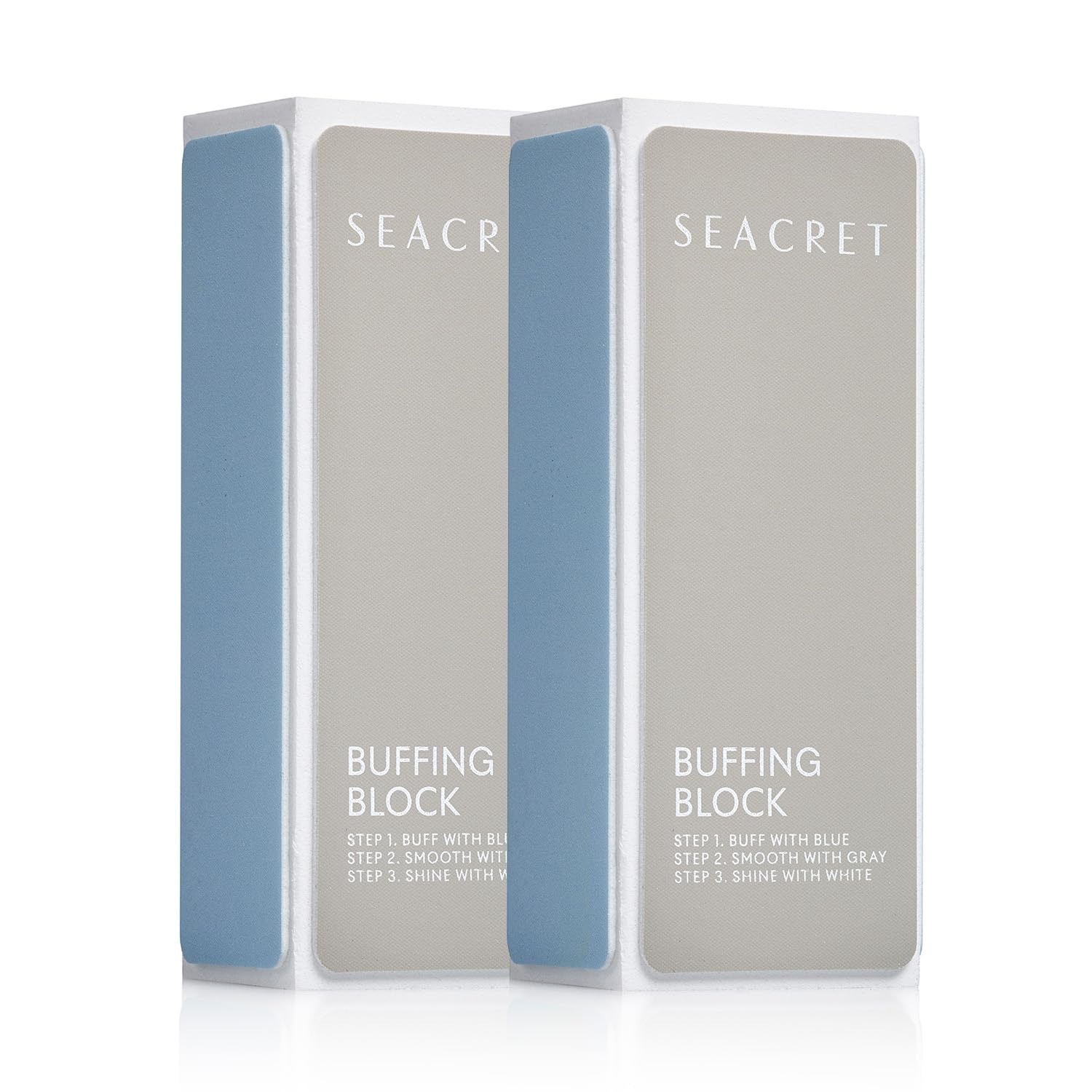
This natural nail buffer is designed to support your nails through everyday wear and tear by offering three ways to buff, shine, and shape them. It's also versatile enough to use for your manicures.
Customer Review: "I had received this exact buffer years ago at the mall. I eventually wore it out and tried others but they never worked as well. I was so happy to find the exact same as I had previously. It works great, and really leaves my nails shiny."
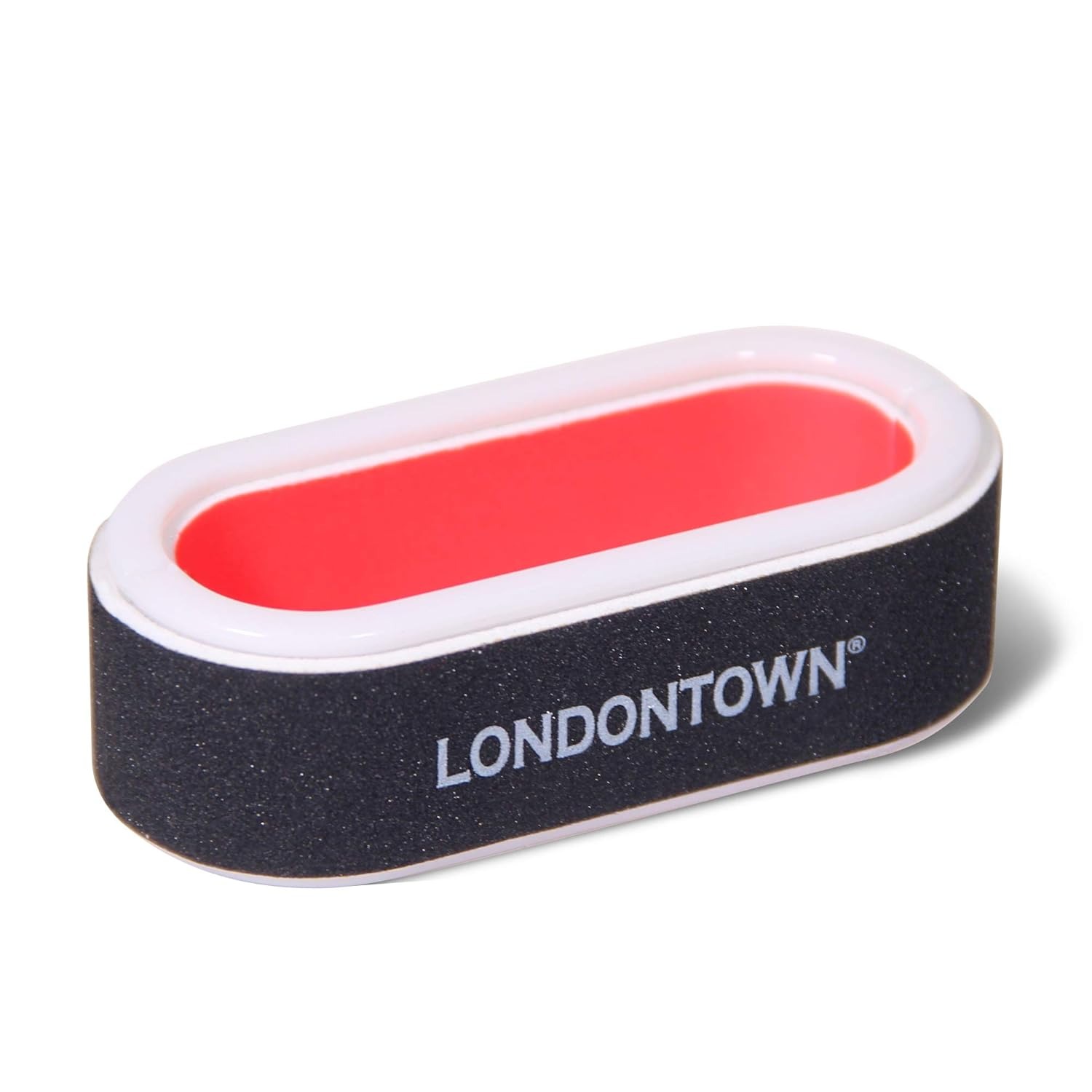
Londontown's Nail Buffer is the ideal size for tucking away in your bag and having on hand just in case of a nail emergency. Its unique design features an outer layer to file your nails and an inside layer to deliver shine.
Customer Review: "My nails look neat and clean. This buffer smooths my nails so no snagging or breaking. I would definitely recommend this buffer. I throw it in my purse so I can tidy my nails on the go!"
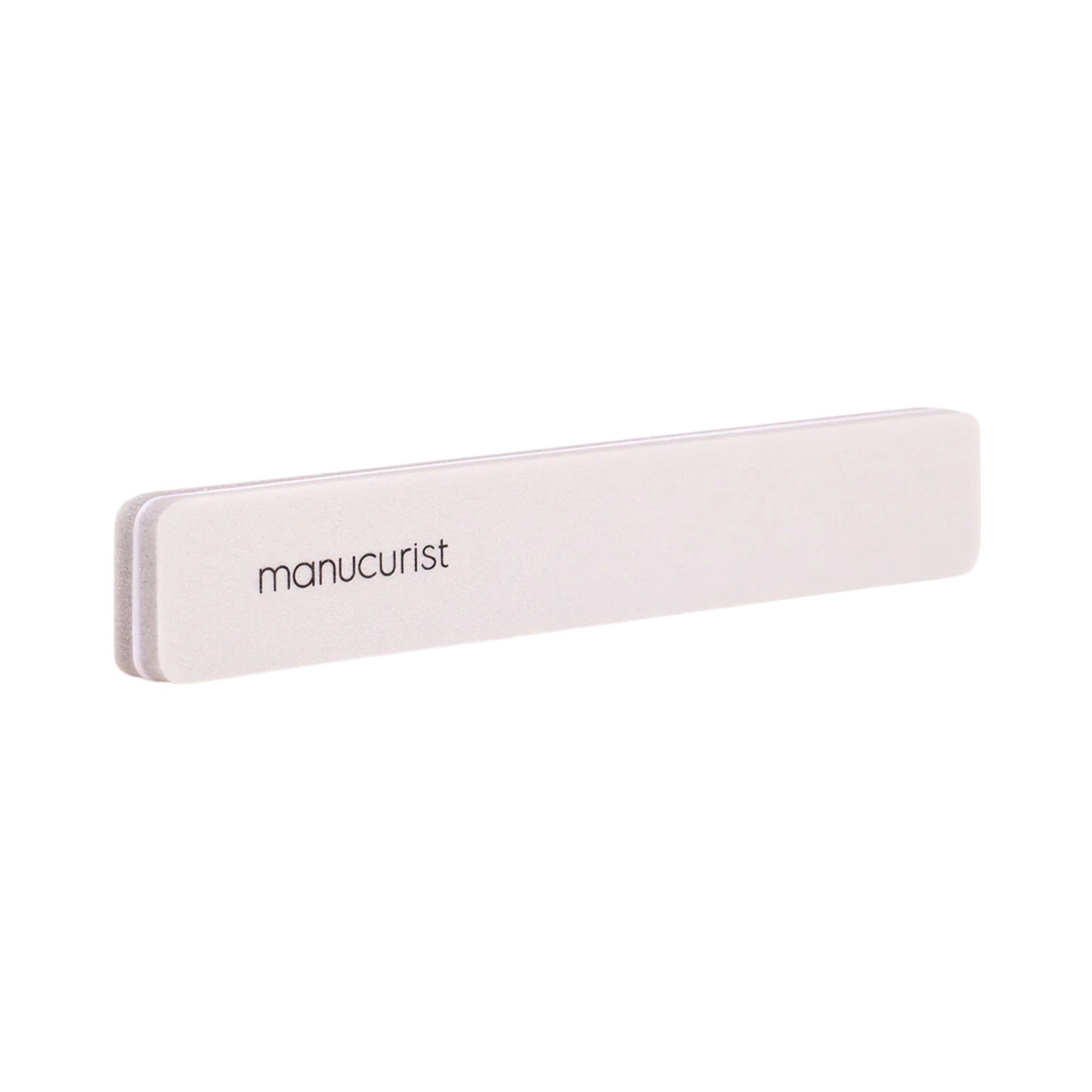
Crafted to help you prepare the nail plate for polish, Manicurist's Nail Buffer Sponge smooths the surface or pesky ridges and imperfections to open the scales of the nail for better base polish adherence.
Customer Reviews: "I have used only the active glow sine it arrived . I find my nails are much stronger don’t chip or peel and look healthier! Love the nail file—best I have ever used."
More Nailcare Favorites

Maya Thomas is an Associate Beauty Editor at Who What Wear. Her strong love for all things beauty, interior design, and fashion stems from a strong childhood interest in the fine arts. During a gap year spent in Paris studying the history of French fashion, she shifted her focus to English literature and journalism as a student at Loyola Marymount University. After graduating in May 2021, Maya began freelancing for Parade.com as a contributing commerce writer. When she's not writing, Maya spends her free time catching up on reading, perusing art galleries, and enjoying a night out at the ballet every now and then.
